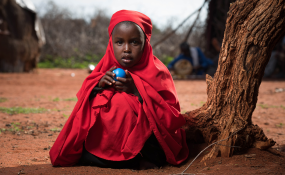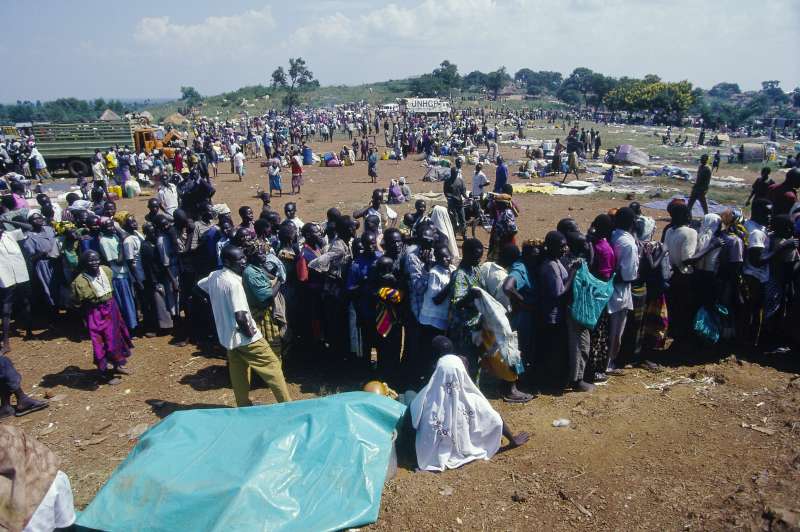Burundi refugee children at Furaha Primary School in Nduta Refugee Camp in western Tanzania, study in a makeshift classroom under the trees. UNHCR/Georgina Goodwin
Four million refugee children do not attend school, UNHCR, the UN Refugee Agency, says in a report released today. This is an increase of half a million of out-of-school refugee children in just one year.
The report, Turn the Tide: Refugee Education in Crisis, shows that, despite the efforts of governments, UNHCR and its partners, enrollment of refugee children in school is failing to keep pace with the growing refugee population. By the end of 2017, there were more than 25.4 million refugees around the world, 19.9 million of them under UNHCR’s mandate. More than half – 52 per cent – were children. Among them, 7.4 million were of school age.

“Education is a way to help children heal, but it is also key to rebuilding their countries,” said Filippo Grandi, UN High Commissioner for Refugees. “Without education, the future of these children and their communities will be irrevocably damaged.”
Only 61 per cent of refugee children attend primary school, compared to 92 per cent of children globally.
As refugee children get older, this gap grows. Nearly two thirds of refugee children who go to primary school do not make it to secondary school. In total, 23 per cent of refugee children attend secondary school, compared to 84 per cent of children globally.
At tertiary level, the gap becomes a chasm. Globally, enrolment in higher education stands at 37 per cent, while only one per cent of refugees have the same opportunity – a figure that has not changed in three years.
“School is the first place in months or even years where refugee children find any normality,” adds Grandi. “Based on current patterns, unless urgent investment is undertaken, hundreds of thousands more children will join these disturbing statistics.”
The report highlights progress made by those committed to the New York Declaration for Refugees and Migrants in enrolling an additional 500,000 formerly out-of-school refugee children in 2017. At the same time, it calls for more to be done to ensure all refugees get the quality education they deserve.
The report urges host countries to enrol refugee children in national systems, with a proper curriculum, all the way through primary and secondary school, to allow for recognized qualifications that can be their springboard to university or higher vocational training.
It further notes that countries in developing regions host 92 per cent of the world’s school-age refugees and need more sustained financial support from the international community.
Finally, the report calls for stronger partnerships with the private sector, humanitarian and development organizations and governments to increase sustainable solutions for refugee education.
Note to Editors:
About the report
‘Turn the Tide: Refugee Education in Crisis’ is the third annual education report from UNHCR. The first, ‘Missing Out’, was released in 2016 in advance of the UN General Assembly’s Summit for Refugees and Migrants in September 2016. It called for donors to provide multi-year and predictable funding for refugee education. The second, ‘Left Behind’, was released in 2017. It highlighted the gap in opportunity between refugee children and their non-refugee peers and called for education to be considered fundamental to the response to refugee emergencies.
About UNHCR
UNHCR, the UN Refugee Agency, leads international action to protect people forced to flee their homes because of conflict and persecution. We deliver life-saving assistance like shelter, food and water, help safeguard fundamental human rights, and develop solutions that ensure people have a safe place to call home where they can build a better future. We also work to ensure that stateless people are granted a nationality.

